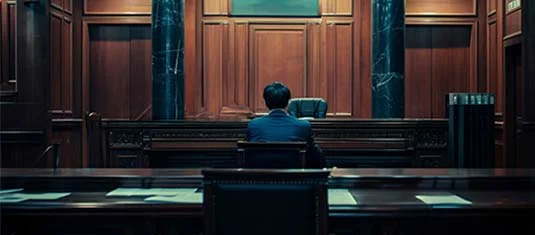The content on this website is for general informational purposes only, and neither we nor any of
our members have engaged in any form of advertising, solicitation, personal communication,
invitation, or inducement to seek legal work through this platform.
- We have not engaged in any form of advertisement, personal communication, solicitation,
invitation, or inducement, whether directly or indirectly, to solicit legal work through
this website. Any interaction with this site is purely initiated by the user to learn more
about
us for their informational purposes.
- The information provided on this platform is shared to enhance legal knowledge in society, as
it is a requirement of today’s world. Any material or content downloaded from this site is
entirely at the user's discretion.
- It is important to note that simply visiting or using this website does not, in any manner,
create a lawyer-client relationship between the user and our firm. Any communication through
this platform should not be construed as legal advice, nor does it imply an attorney-client
engagement.
The information available on this website is provided solely at your request and is intended for
informational purposes only. It should not be viewed as solicitation, advisement, or legal
advice. We are not responsible for any actions taken by users based on the materials or
information
found on this website. If you are facing legal issues, you must seek independent legal counsel
to obtain
proper guidance.

